Introduction
Most businesses are wasting WhatsApp.
They’re treating it like just another messaging app. When it’s not. WhatsApp is a direct line to your customers, one they trust and use every day.
In 2025, ignoring its potential means missing out on the easiest way to connect with people where they already are. This guide is about fixing that.
We’ll cover 19 practical strategies to turn WhatsApp into your most powerful marketing tool. From small businesses using the WhatsApp Business App to companies wanting to leverage the API, there’s a way for everyone to stand out. It’s time to make WhatsApp work for you.
WhatsApp Marketing Strategies for WhatsApp Business App Users
For small businesses or those not ready to shift to the API, the WhatsApp Business App is a free, easy-to-use tool packed with features to enhance customer engagement and streamline operations. It’s perfect for entrepreneurs who want results without complexity.
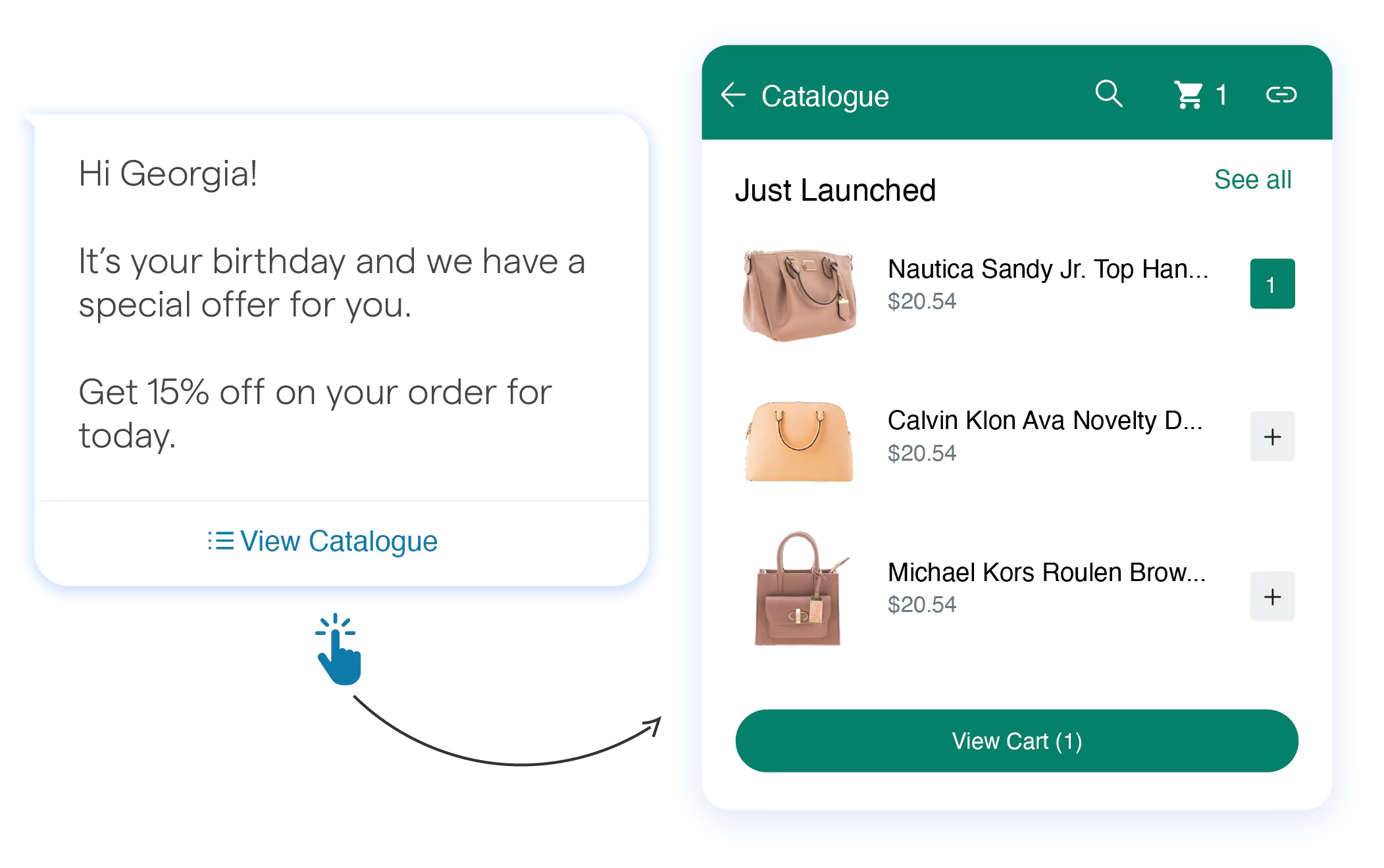
Here are eight practical WhatsApp marketing strategies that deliver real ROI while aligning with today’s trends in customer communication.
1. Set Up a Complete Business Profile
Your business profile is your first impression. Think of it as your storefront, and make it count. A complete profile includes your business name, logo, address, working hours, website, and a brief description of your services. This simple step builds trust and saves customers time.
If you own a small photography studio, your profile can list available packages, a link to your portfolio, and your operating hours. When potential clients find everything they need in one place, they’re more likely to reach out.
Businesses that maintain detailed profiles see higher engagement rates because customers feel confident they’re interacting with a legitimate brand.
A complete profile doesn’t just build trust, it sets the foundation for your WhatsApp marketing strategy by making your brand approachable and transparent.
2. Leverage Quick Replies
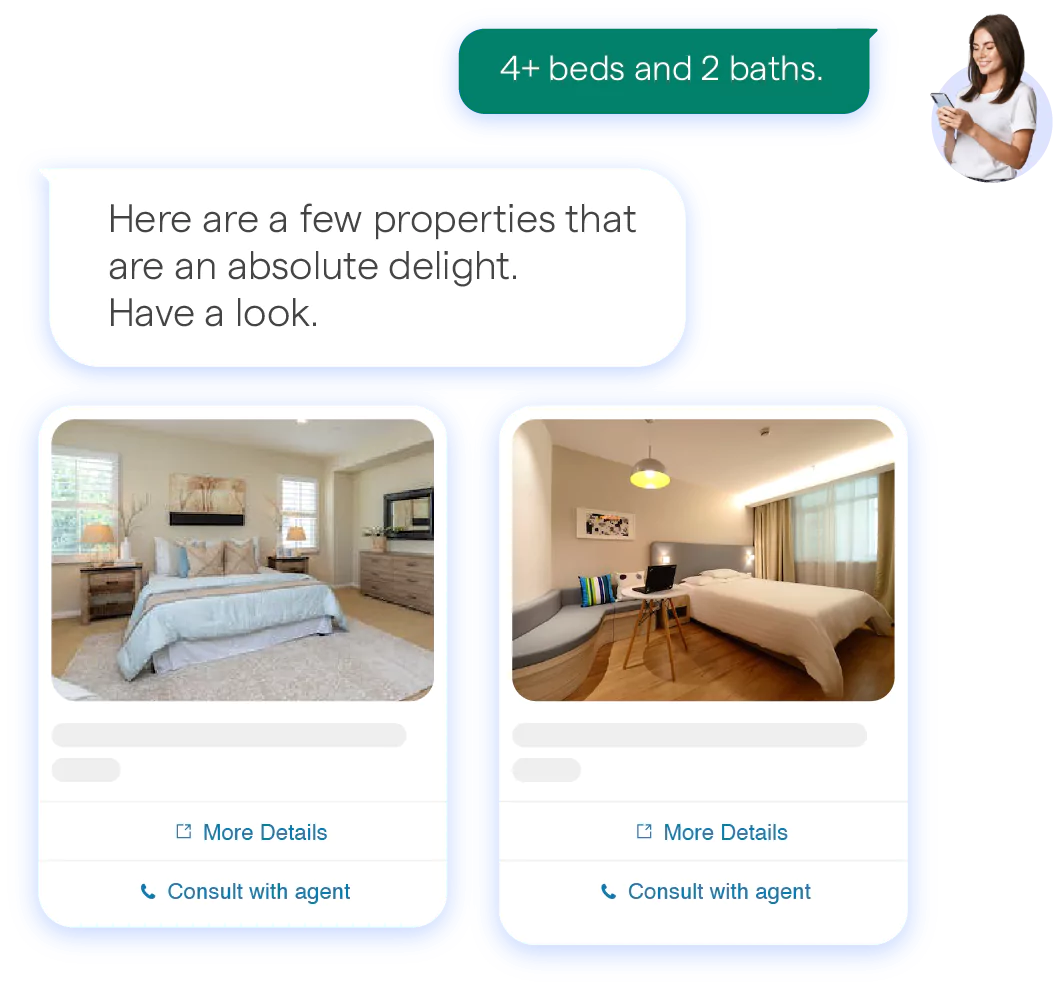
Quick Replies are a lifesaver for businesses with limited time and resources. This feature lets you save and reuse responses to frequently asked questions.
It ensures customers get fast, accurate answers, enhancing their experience and freeing you up for other tasks.
Imagine you run a home cleaning service, and a customer asks, “What’s the hourly rate?” Instead of typing the same response multiple times a day, you can use a Quick Reply like:
“Hi [Name]! Our hourly rate starts at $25. Discounts are available for weekly bookings. Let us know if you’d like to schedule!”
Speed matters. Studies show 82% of customers expect responses within an hour (HubSpot). By using Quick Replies, you’re not only meeting customer expectations but also demonstrating professionalism.
This ease of use is central to effective WhatsApp marketing strategies, ensuring you provide value without adding to your workload.
3. Use Labels for Customer Segmentation
Labels help you stay organized by categorizing chats into groups like “New Leads,” “Returning Customers,” or “Pending Payments.” This makes targeted communication easy, which is key for any WhatsApp business marketing strategy.
Picture a flower shop during Valentine’s Day. You’ve labeled customers based on their orders—roses, bouquets, or gift sets. When you receive a new shipment of roses, you can instantly notify the “Interested in Roses” group with a personalized message about the fresh stock.
This targeted approach boosts your ROI. Instead of sending irrelevant updates to everyone, you’re reaching customers with content they care about.
Segmenting also aligns with the trend of personalization, which drives higher engagement and conversion rates.
4. Automate Greetings and Away Messages
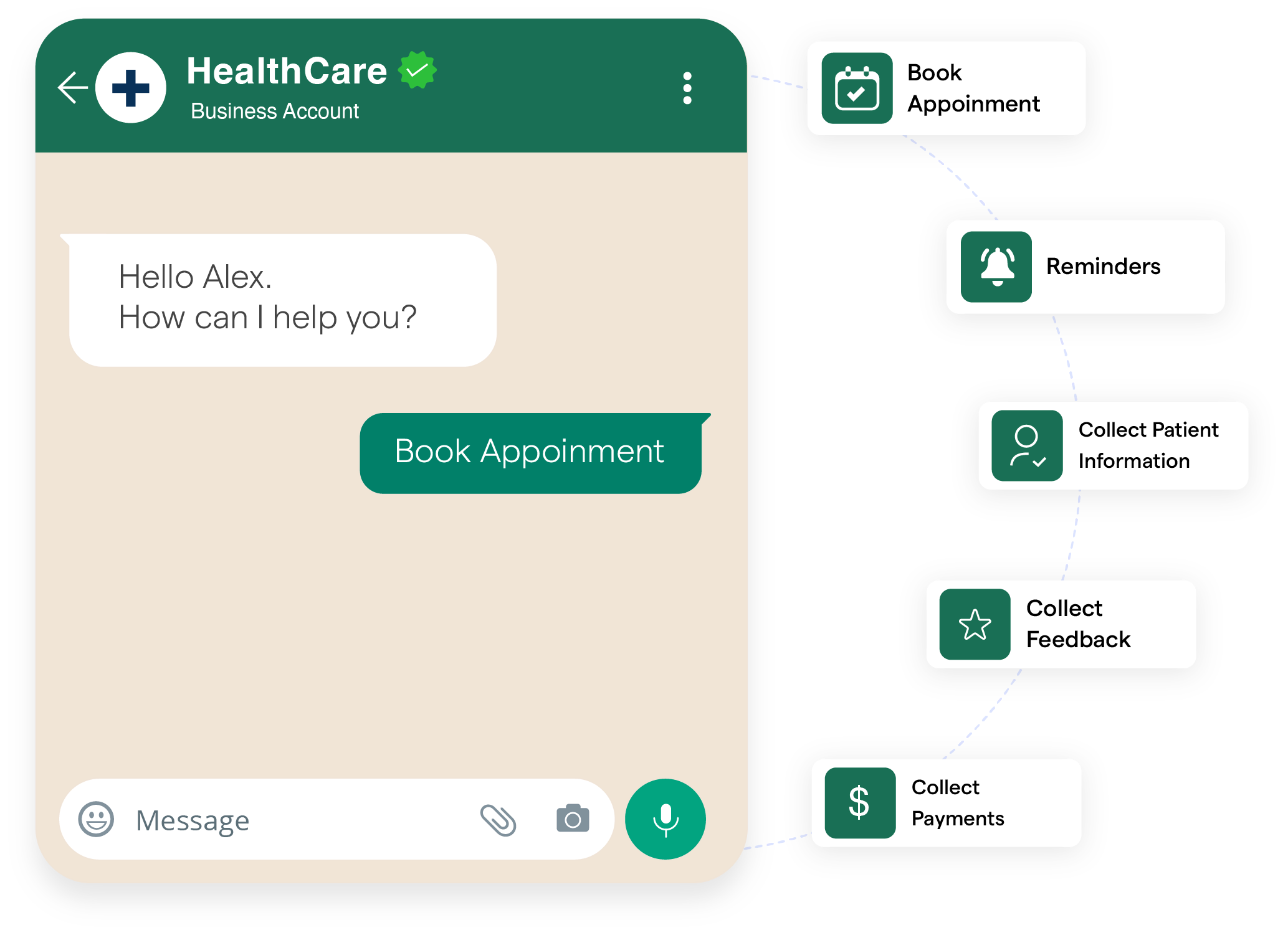
Automation makes your business available even when you’re not. Greeting messages help you connect with new customers, while away messages set clear expectations for response times.
A local bookstore could set an automated greeting like:
“Hi there! Thanks for contacting [Bookstore Name]. We’re excited to help you find your next great read. Feel free to browse our catalog here: [link].”
An away message might say:
“Hi [Name]!! We’re currently closed, but we’ll get back to you by 10 AM tomorrow. In the meantime, check out our online shop at [link].”
These small touches make a big difference. They show customers you care about their time and are committed to providing excellent service.
Research shows that businesses using automation tools experience a 40% improvement in response times, which directly impacts customer satisfaction (McKinsey)
Suggested Reading:
50 Ready to Use Greeting Message for WhatsApp Business
5. Use QR Codes and WhatsApp Links
QR codes and links simplify the process of connecting with customers. With just a scan or a click, users can initiate chats with your business, making it incredibly convenient for them to reach you.
Imagine running a coffee shop. You can place a QR code at the counter saying, “Scan to pre-order your coffee or ask about our menu.” Customers can instantly message you without needing to save your contact details.
Similarly, a WhatsApp link embedded in your social media bio can drive traffic directly to your inbox, enabling seamless communication.
QR codes and links also align with the current trend of minimizing customer effort. Research shows that 71% of consumers prefer brands that offer instant communication (WARC and Meta).
By integrating these tools into your WhatsApp marketing strategy, you create a frictionless experience that encourages engagement.
6. Build WhatsApp Groups & Communities
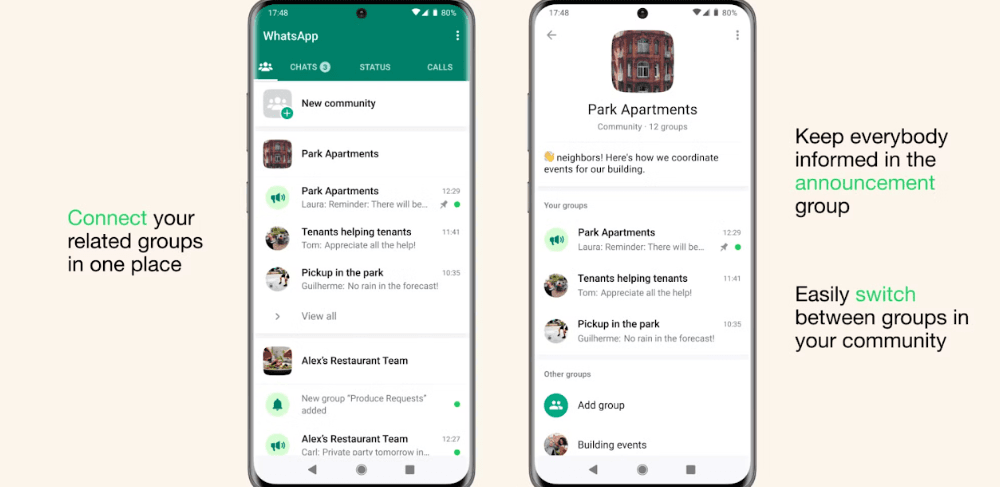
Groups and communities are excellent for fostering loyalty and keeping customers engaged. Unlike one-on-one chats, groups allow you to communicate with multiple people simultaneously, creating a sense of belonging.
Take a local yoga instructor as an example. They could create a group for regular attendees where they share class schedules, tips, and exclusive offers.
Members can interact, share their progress, and motivate each other. This builds a community around your brand and keeps customers coming back.
However, it’s important to keep groups relevant and manageable. Avoid overwhelming members with frequent messages. Stick to valuable content that strengthens their connection to your business.
A well-managed group can become a core part of your WhatsApp business marketing strategy, driving repeat engagement and fostering loyalty.
7. Take Advantage of Broadcast Capability
Broadcast lists allow you to send messages to multiple recipients at once, but unlike groups, responses remain private. This is perfect for businesses looking to run targeted campaigns without creating a public discussion space.
Imagine you own a clothing store. You’ve segmented your audience into categories like “Men’s Wear” and “Women’s Wear” using labels. When launching a new women’s collection, you can send a broadcast to the relevant list, sharing exclusive previews and limited-time discounts.
Broadcasts are an integral part of modern WhatsApp marketing strategies. They enable personalized communication at scale, which is crucial for increasing conversions.
8. Leverage WhatsApp Status Marketing Strategy
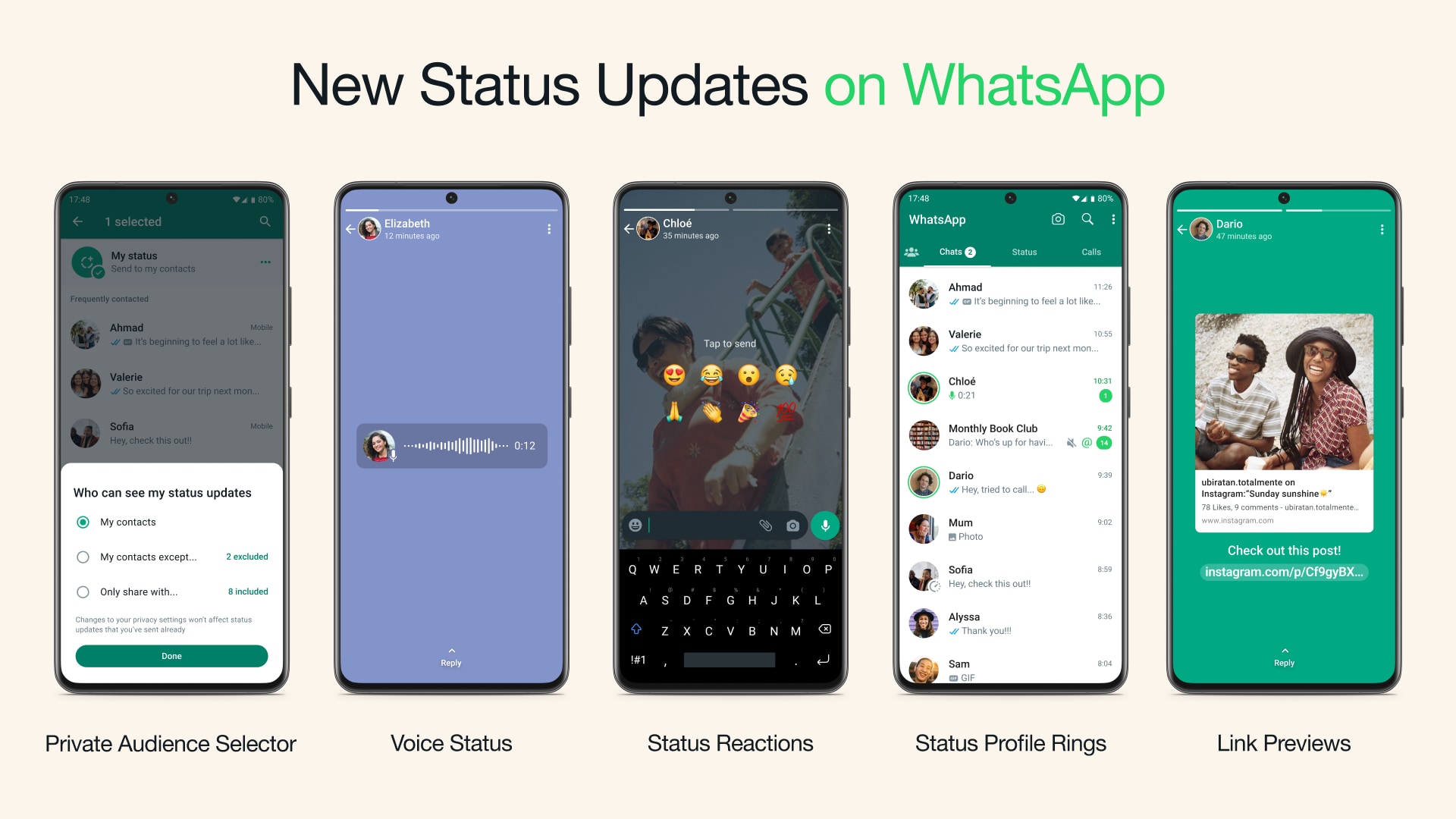
The WhatsApp Status feature lets you share updates that disappear after 24 hours. This tool is perfect for time-sensitive promotions, behind-the-scenes content, or storytelling.
For example, a bakery could post a status showing fresh croissants coming out of the oven, paired with a message like, “Freshly baked croissants available today—grab yours before 3 PM!” Customers viewing the status feel a sense of urgency, encouraging immediate action.
WhatsApp statuses have an impressive view rate. Leveraging WhatsApp status marketing strategy ensures you’re consistently visible to your audience.
The disappearing nature of statuses also creates a fear of missing out (FOMO), driving engagement and purchases.
WhatsApp Marketing Strategies Requiring WhatsApp Business API
The WhatsApp Business API is designed for businesses needing advanced features to manage customer communication at scale.
Unlike the WhatsApp Business App, the API doesn’t have a user interface. Instead, it integrates with third-party platforms to handle messaging, automation, and customer support.
It’s ideal for medium to large businesses with high-volume interactions, but it comes with additional costs. You’ll also need a third-party provider, such as BotPenguin, to enable and manage these features seamlessly.
Note: Think of the WhatsApp API like a regular WhatsApp app but with extra capabilities to supercharge your marketing and communication.
Here are 11 more powerful WhatsApp marketing strategies you can implement using the business API.
9. Bulk Messaging to Reach Large Audiences
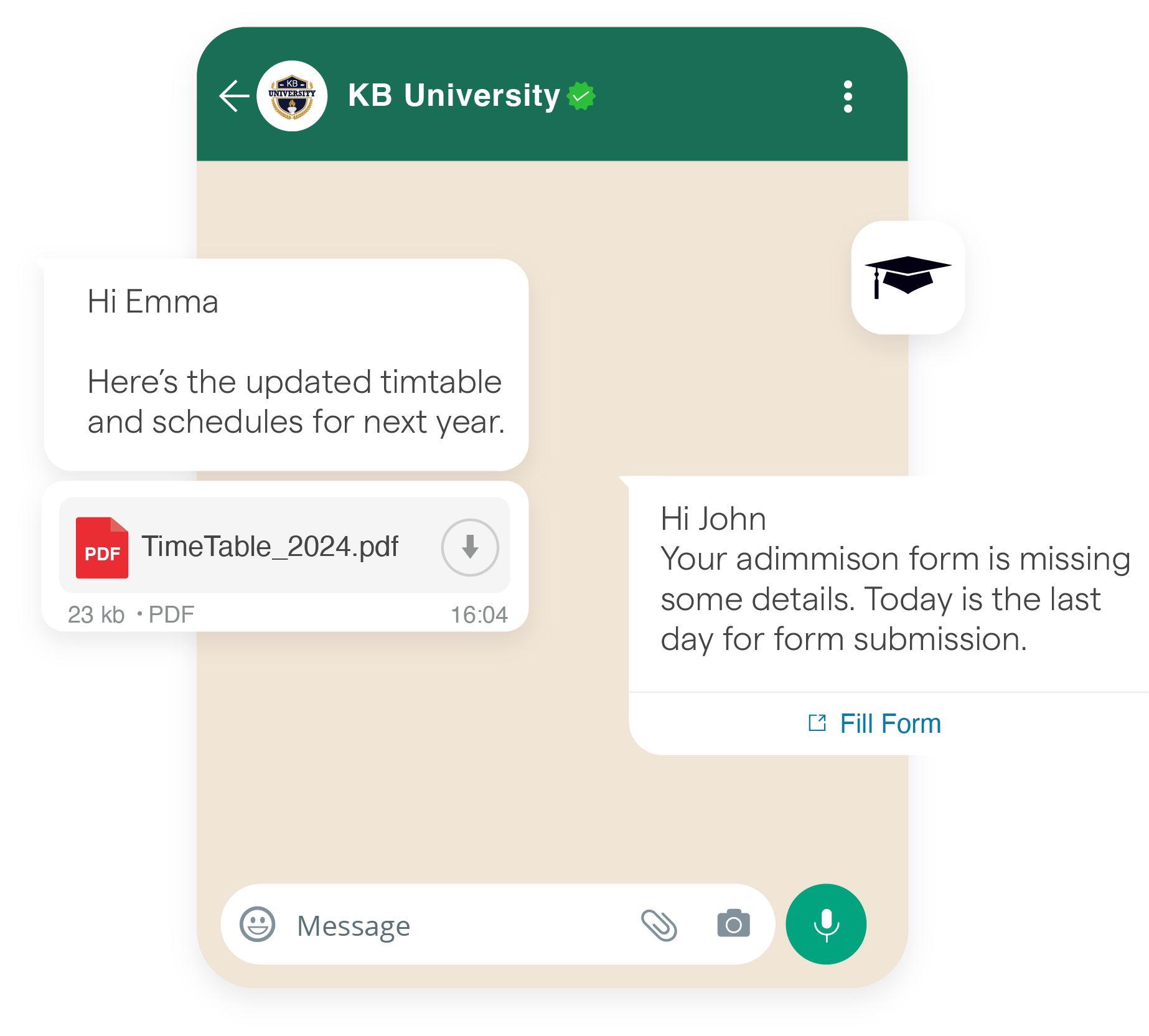
Bulk messaging through the API removes the limitations of the broadcast feature on the WhatsApp Business App. In the app, broadcast messages are restricted to 256 recipients, and users must save your number to receive them.
With the API, you can send personalized messages to thousands of users, whether they’ve saved your contact or not, provided they’ve opted in.
Let’s say you’re an e-commerce retailer running a flash sale. Using bulk messaging, you can notify your entire subscriber list about discounts on specific categories.
Messages can be tailored with variables like the customer’s name, preferences, or purchase history, making them feel personal and engaging.
This capability is a cornerstone of a robust WhatsApp marketing strategy. It allows you to reach a wider audience without sacrificing personalization. Businesses that adopt bulk campaigns report increase in customer engagement compared to traditional email marketing.
Suggested Reading:
14 Best WhatsApp Marketing Messages with Examples
10. Showcase Product Catalog Directly within WhatsApp
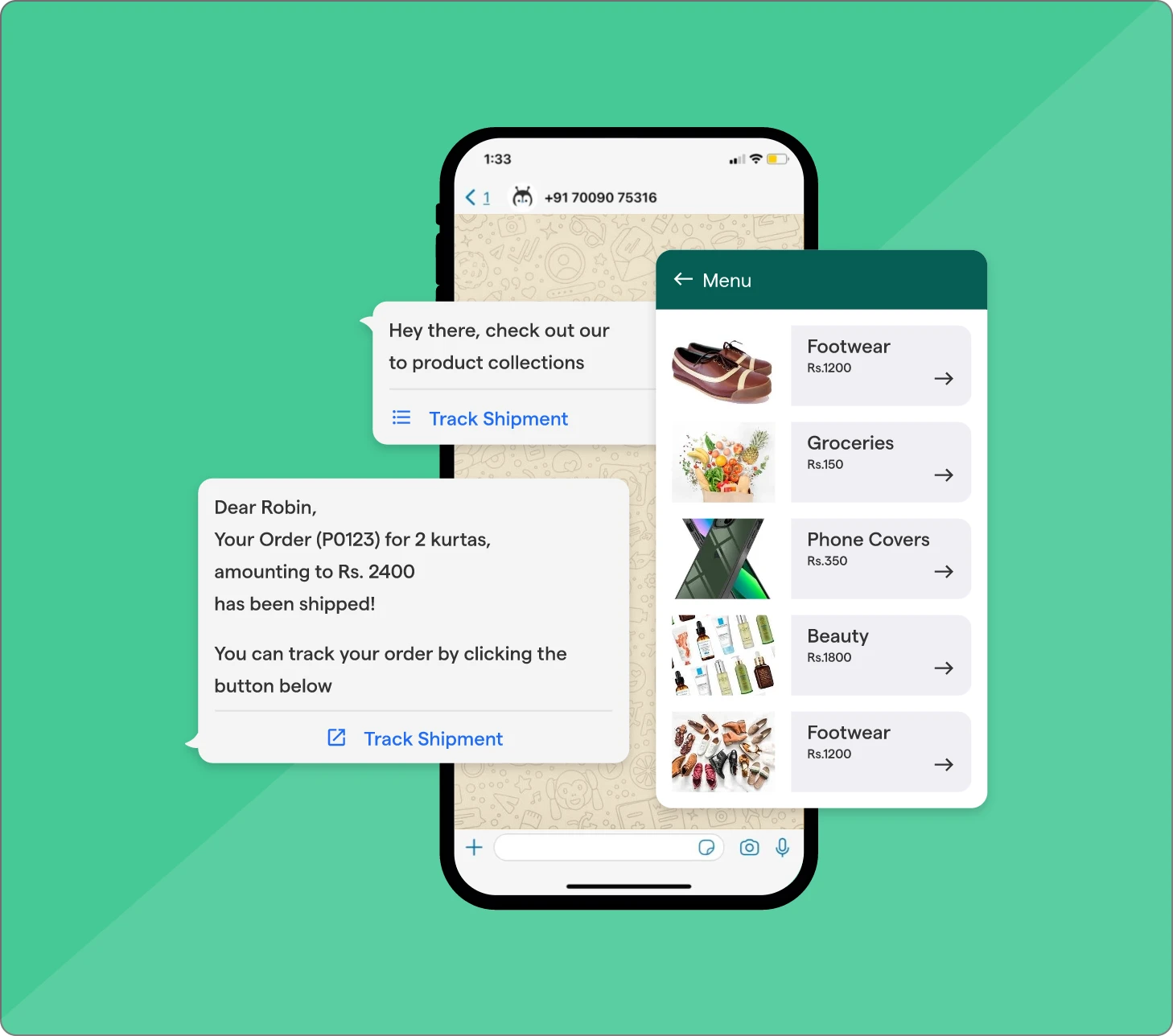
The WhatsApp Business API takes product catalogs to the next level by allowing you to showcase your offerings directly within a WhatsApp chat.
Unlike the basic catalog feature in the Business App, the API lets you manage and update your catalog dynamically.
Imagine you own a furniture store. A customer messages you about available options for a dining table. With the API-powered catalog, you can instantly share a curated list of tables, complete with images, descriptions, and prices, right within the chat.
This feature is particularly valuable for businesses with extensive inventories. It simplifies the buying journey, reduces response time, and keeps the customer engaged.
Tools like BotPenguin can automate catalog sharing, making this feature an effortless addition to your WhatsApp business marketing strategy.
11. Use Carousel Messages, Engaging Customers
Carousel messages are interactive templates that allow you to display multiple products, services, or options in a single message. This feature enhances customer experience by enabling users to browse through choices without leaving the chat.
For example, a travel agency could use carousel messages to showcase vacation packages. Each slide can include an image, title, and call-to-action button, such as “Learn More” or “Book Now.” Customers can scroll through the options and take action immediately.
This interactive approach aligns with current trends in conversational commerce. Businesses leveraging carousel messages see higher click-through rates because the format is visually engaging and action-oriented. It’s a modern WhatsApp marketing strategy that merges convenience with aesthetics.
12. Enable WhatsApp Payments
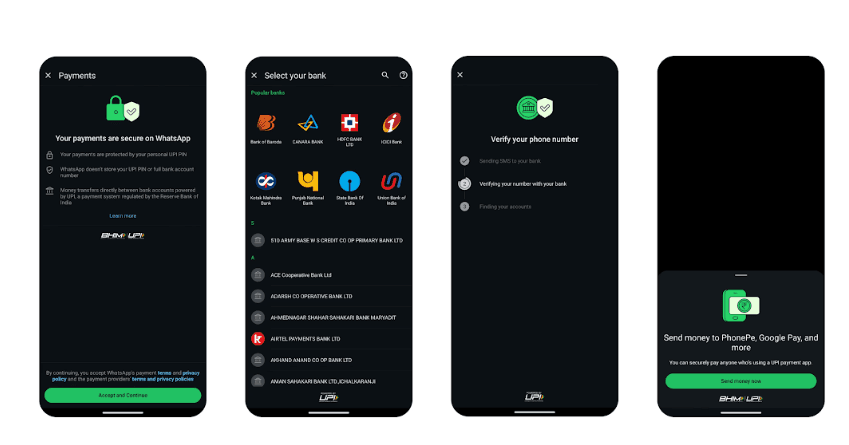
With WhatsApp Payments via the API, businesses can collect payments directly within the app. This feature eliminates the need for customers to switch between platforms, creating a seamless transaction experience.
Picture a small online bakery taking pre-orders for festive cakes. Customers can browse the catalog, select their favorite cake, and make payments—all within a single WhatsApp conversation. This reduces friction and boosts conversions.
WhatsApp Payments also provide a sense of security for customers, as they’re already familiar with the platform. Integration with tools like BotPenguin ensures payment requests are automated and handled efficiently.
13. Run Click-to-WhatsApp Ads
Click-to-WhatsApp ads integrate social media and WhatsApp, creating a direct path for potential customers to engage with your business.
These ads appear on platforms like Facebook or Instagram, with a call-to-action button that opens a WhatsApp chat when clicked.
Imagine a local travel agency running an ad for summer vacation packages. A user scrolling through Instagram sees an enticing offer with a “Message Us” button. They click, and a WhatsApp chat opens, where they can inquire further or book a package.
Click-to-WhatsApp ads work because they reduce friction. Customers don’t need to call, email, or navigate multiple platforms. This seamless integration makes them a cornerstone of any WhatsApp marketing strategy, combining convenience with immediate action.
14. Automate Reminders & Notifications
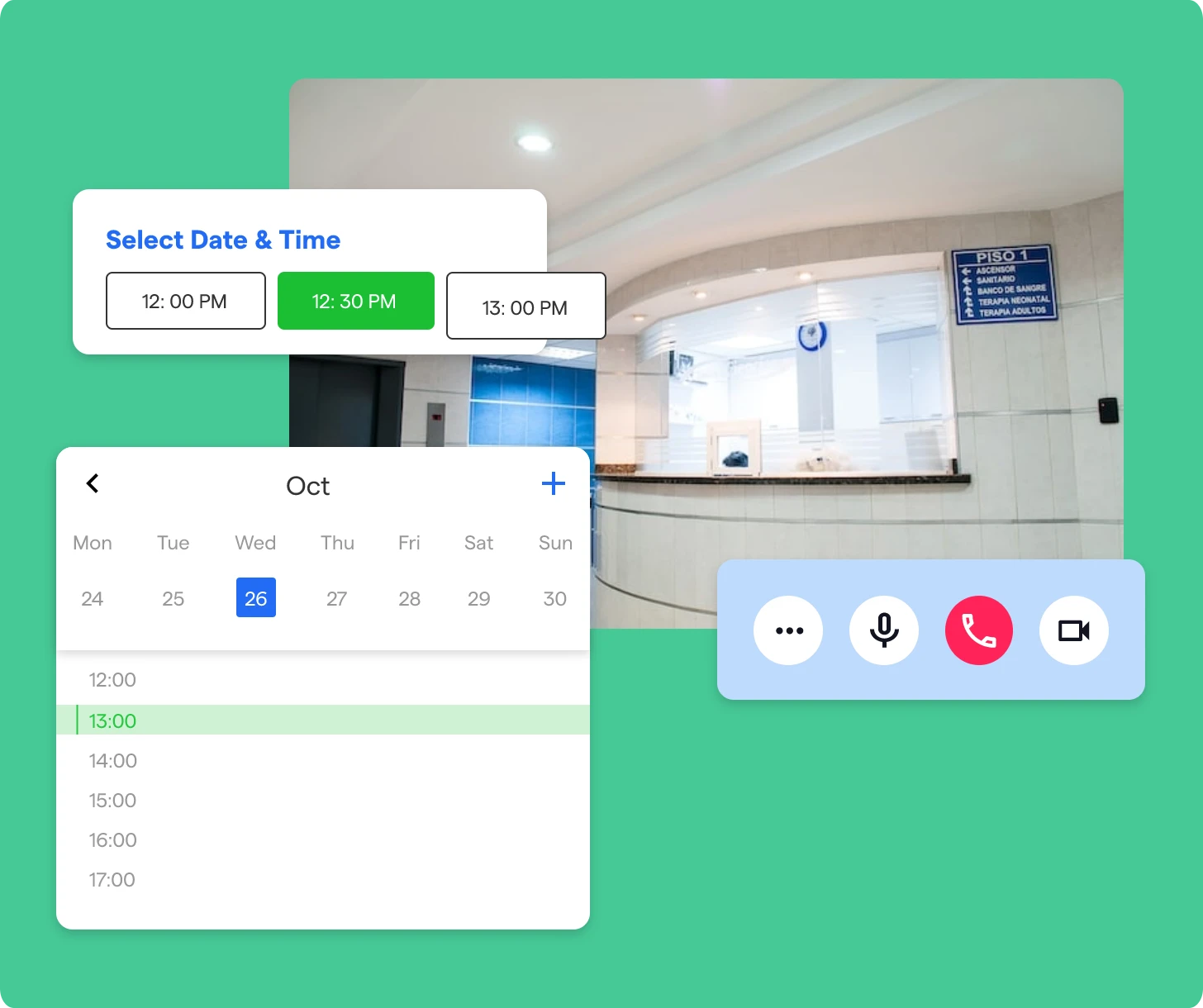
Automated reminders and notifications are invaluable for businesses handling multiple customer interactions.
With the API, you can send timely messages for appointments, order updates, payment confirmations, and more. This automation reduces manual follow-ups and enhances the customer experience.
Take a salon, for example. Instead of calling clients to confirm appointments, the salon can use the API to send automated reminders like:
“Hi [Name], this is a reminder for your haircut appointment tomorrow at 3 PM. Reply ‘1’ to confirm or ‘2’ to reschedule.”
Using tools like BotPenguin, you can implement these workflows effortlessly, making automation a vital part of your WhatsApp business marketing strategy.
15. Integrate WhatsApp Button on Website
A WhatsApp button on your website makes it easy for visitors to start a conversation with your business directly. This feature reduces barriers to communication, helping you convert casual browsers into leads or customers.
Imagine you’re an e-commerce store selling handmade accessories. A potential customer browsing your site has a question about shipping. Instead of filling out a contact form or waiting for an email response, they click the WhatsApp button and chat instantly. This not only provides quick answers but also increases their likelihood of making a purchase.
Integrating this feature with the API allows you to handle chats efficiently while personalizing responses. It’s a small addition that can make a big difference to your overall WhatsApp marketing strategies.
Suggested Reading:
11 Tips for Running Successful WhatsApp Marketing Campaigns
16. Use Quick Replies with CTAs
Quick Replies with predefined call-to-action (CTA) buttons streamline conversations by giving customers ready-made options to respond or take action. These buttons could guide users to make a purchase, book a service, or learn more about a product.
For example, an online fitness coach offering different plans can use a Quick Reply template like:
“Hi [Name]! Choose an option below to get started:
- View our fitness packages
- Book a free consultation
- Contact support for inquiries”
Customers simply tap their preferred option, making interactions faster and more engaging. This functionality, powered by tools like BotPenguin, ensures your business operates smoothly while meeting customer needs effectively.
Quick Replies with CTAs are highly effective because they simplify decision-making for users, a must-have feature in your WhatsApp marketing strategy.
17. Recover Abandoned Carts
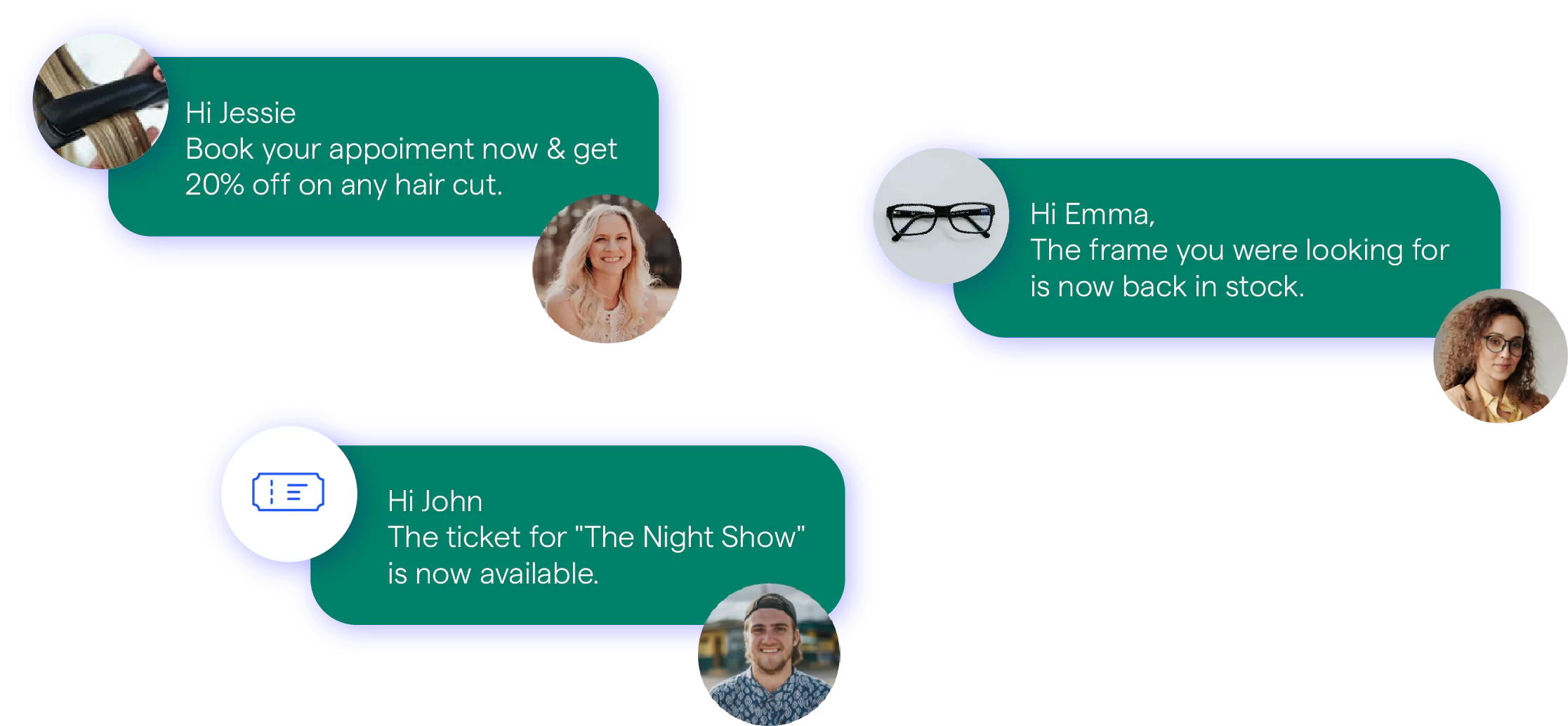
Cart abandonment is a challenge for every e-commerce business, but the WhatsApp API provides a solution. By sending personalized reminders to users who left items in their carts, you can nudge them back toward completing their purchase.
Imagine a fashion retailer noticing that a customer added a pair of shoes to their cart but didn’t check out. Using the API, the retailer can send a message like:
“Hi [Name], the shoes you love are still waiting for you! Complete your purchase now and get free shipping today: [link].”
This approach works because WhatsApp’s direct messaging feels more personal than email. It creates a sense of urgency while addressing the customer individually, making it a powerful WhatsApp business marketing strategy.
Tools like BotPenguin can automate these messages based on user behavior, saving you time while boosting your revenue.
18. Run WhatsApp Retargeting Campaigns
Retargeting is essential for reconnecting with users who’ve interacted with your business but haven’t taken the desired action.
The WhatsApp API enables hyper-targeted retargeting campaigns based on user activity, like whether they opened a previous message, read it, or didn’t respond.
Let’s say a travel agency sent a package deal to a potential customer who didn’t reply. Using BotPenguin, you can automatically send a follow-up message:
“Hi [Name], we noticed you checked out our Bali vacation package but haven’t booked yet. Here’s an exclusive 10% discount for you: [link]. Offer valid for 24 hours only!”
Retargeting campaigns on WhatsApp are highly effective because they deliver timely, relevant messages directly to the user.
Personalized follow-ups based on user responses significantly improve engagement and ROI, making this an essential part of your WhatsApp marketing strategies.
19. Use WhatsApp Chatbot Delivering 24/7 Support
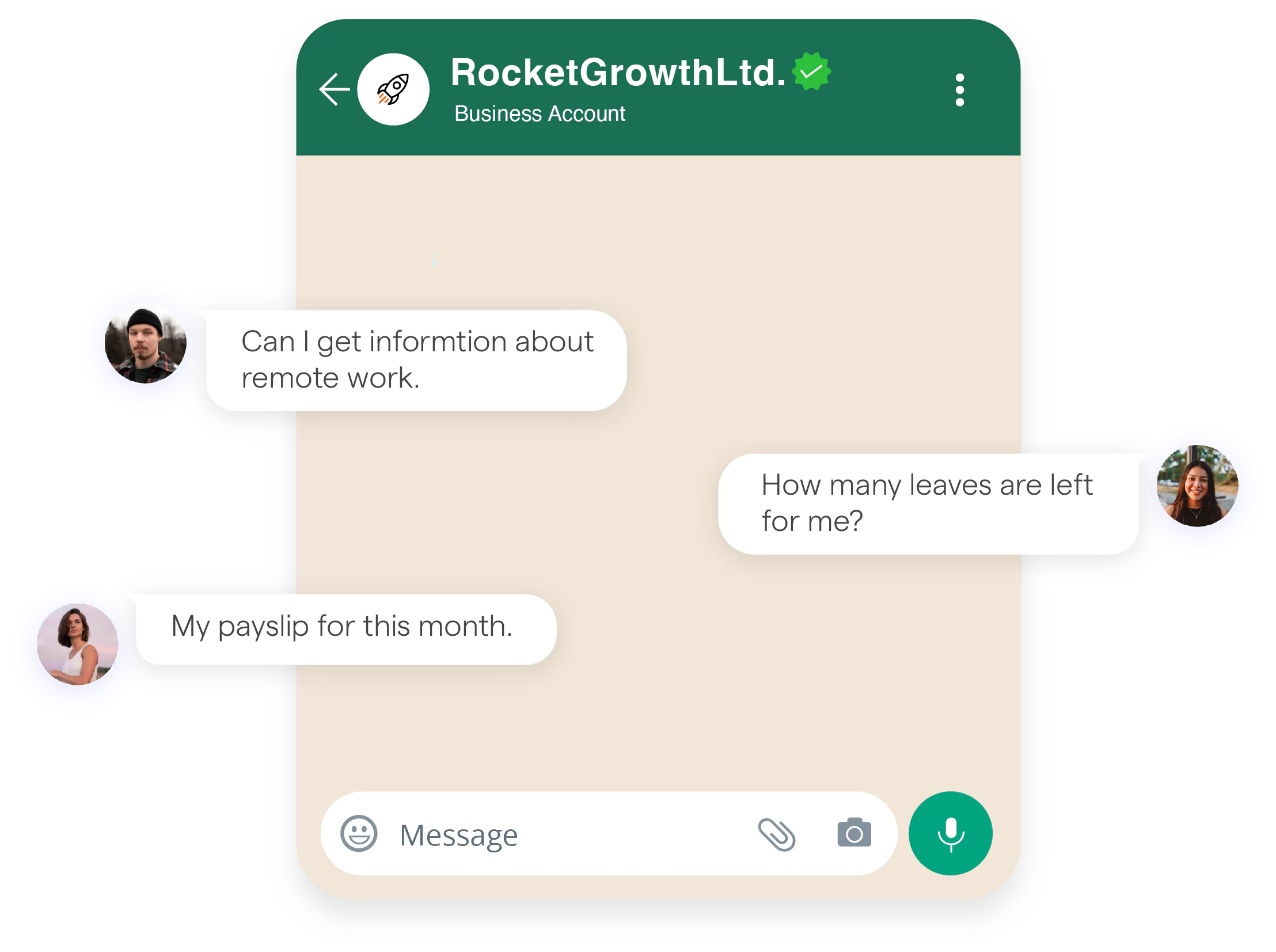
A WhatsApp chatbot powered by the API is like having a 24/7 assistant for your business. It can handle multiple tasks, including customer queries, appointment bookings, order tracking, and even executing all the WhatsApp marketing strategies mentioned above.
For instance, using BotPenguin, a clothing brand can automate responses to frequently asked questions like “What’s your return policy?” while simultaneously sending cart reminders, retargeting messages, and catalog updates. The chatbot can even guide customers through a purchase journey, reducing the need for manual intervention.
Chatbots aren’t just about convenience—they also deliver results. The chatbot’s ability to engage customers in real-time ensures that no opportunity is missed, making it an indispensable tool for scaling operations.
Moreover, chatbots align with current trends in conversational commerce, where users prefer interacting with brands in a chat format.
By adopting a chatbot like BotPenguin, businesses can future-proof their communication strategy and deliver exceptional customer experiences.
Conclusion
WhatsApp is more than just a messaging app—it’s a dynamic platform for connecting with customers, building loyalty, and driving sales.
From simple tools in the Business App to advanced features in the API, these 19 strategies equip businesses with actionable ways to grow in 2025.
Implementing these strategies effectively requires the right tools. That’s where solutions like BotPenguin come in. With this No Code AI Chatbot Builder, implementing all 19 strategies becomes incredibly easy. Here’s how:
- Automate cart recovery, retargeting campaigns, and notifications without lifting a finger.
- Manage bulk messaging with unparalleled personalization at scale.
- Seamlessly integrate WhatsApp buttons on your website to boost engagement.
- Use advanced AI chatbots to handle customer interactions 24/7.
- Access all API features in one unified platform—no technical expertise needed.
Start implementing your WhatsApp marketing strategy effortlessly with BotPenguin. It’s the ultimate tool to save time, increase ROI, and stay ahead of the competition.
Frequently Asked Questions (FAQs)
What are the benefits of WhatsApp marketing for small businesses?
WhatsApp marketing offers direct communication, high open rates, cost efficiency, and personalized customer interactions, making it ideal for small businesses looking to build customer trust and loyalty.
Is WhatsApp Business API necessary for marketing?
For large-scale campaigns and automation, WhatsApp Business API is essential. However, small businesses can use the regular WhatsApp Business app for limited but effective marketing.
Can small businesses leverage WhatsApp Business API?
Yes, small businesses can use WhatsApp Business API to automate customer interactions, manage bulk messaging, and provide seamless support.
However, it requires an approved application process and is more suited for businesses handling a high volume of messages.
What is the cost of using WhatsApp Business API via third-party tools?
The cost varies based on the provider, message volume, and region. WhatsApp charges per conversation, with rates differing by country and message type.
Third-party providers may add setup fees, monthly subscriptions, or per-message charges. It's essential to compare providers to find a plan that fits your budget and needs.
Is WhatsApp marketing legal?
Yes, WhatsApp marketing is legal as long as businesses comply with privacy laws. This includes obtaining user consent, providing opt-out options, and adhering to the platform's policies against spam and unsolicited messaging.
Are there analytics tools for WhatsApp marketing?
Yes, tools like WhatsApp Business API integrations provide insights on message delivery, open rates, customer response times, and engagement levels to measure campaign success.




